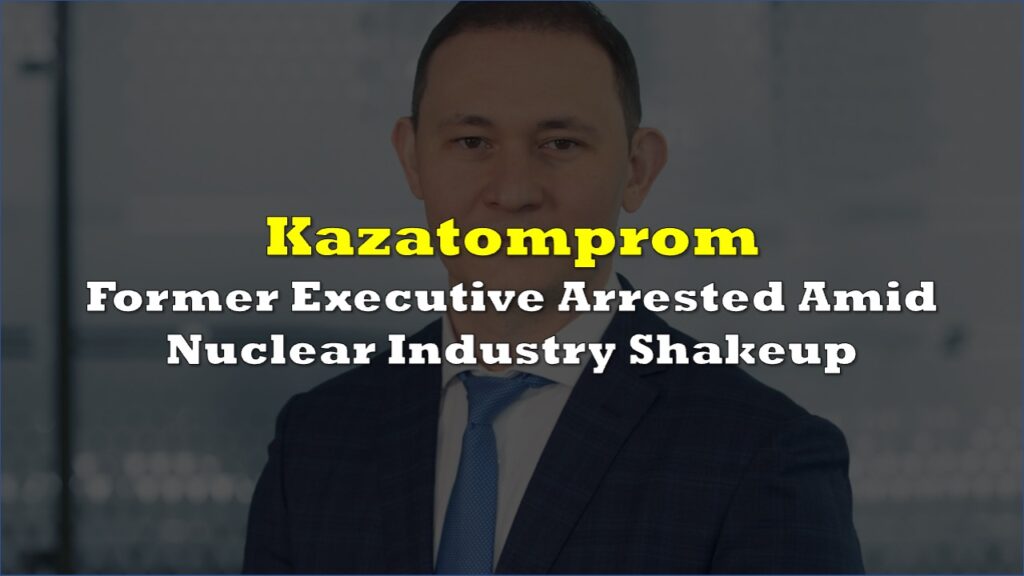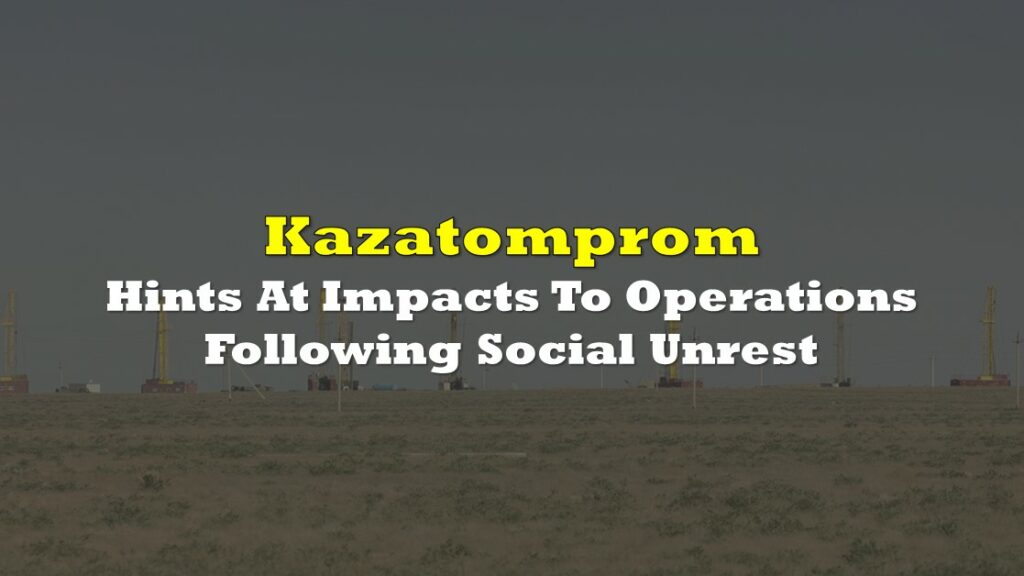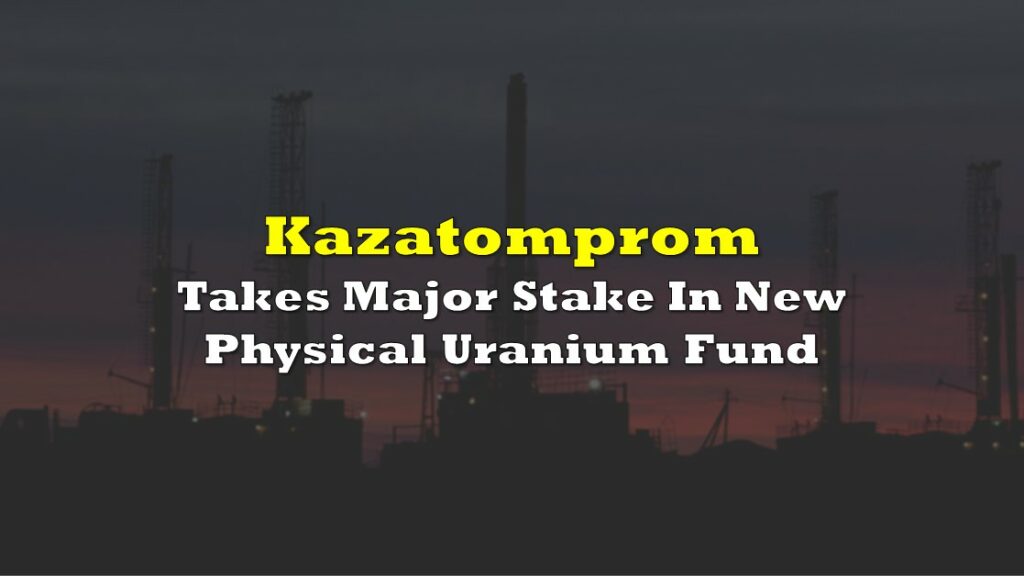Kazakhstan, home to Kazatomprom, the world’s largest producer of uranium, finds itself in the center of a geopolitical and corporate storm. With 19 executives resigning or being arrested from the company since 2020, the implications of these leadership changes go far beyond corporate restructuring. A combination of internal management crises, rising geopolitical tensions, and growing Russian influence has cast a shadow over the global uranium market, raising alarms among energy sectors in the West.
According to a report circulating on financial platforms, 19 high-ranking executives have left Kazatomprom since 2020, either through resignation or arrest. The most recent departure occurred in August 2024, when CFO Sultan Temirbayev stepped down. Just months before, Chief Commercial Officer Askar Batyrbayev was arrested in June 2024, underlining the turbulent environment within the company.
The scale of these executive departures is unprecedented, with insiders and analysts wondering if more is at play than typical corporate turnover. Some speculate that political pressure and Kazakhstan’s evolving geopolitical landscape may be behind the exodus. It’s hard to ignore the arrest of Batyrbayev or the detention of former CEO Galymzhan Pirmatov, events that highlight growing government scrutiny and intervention at the highest levels of Kazatomprom’s leadership.
$KAP 🇰🇿 Jurisdictional Risk https://t.co/iQ5ukCpIah
— Praise ꓘeK Inquisitor (@PraiseKek) October 5, 2024
The broader context of these changes at Kazatomprom involves increasing geopolitical tensions between Kazakhstan and Western countries, aggravated by Russia’s assertive role in the region. While Kazatomprom controls about 40% of the world’s uranium supply, the country’s ability to export uranium to Western nations has been significantly impacted by the sanctions imposed on Russia after its invasion of Ukraine. This has made transportation routes through Russia prohibitively expensive for Kazatomprom, as noted by current CEO Meirzhan Yussupov in a recent interview.
As a result, Kazakhstan is now exploring alternative routes for its uranium exports, including Azerbaijan, though recent reports suggest this is also proving costly . The growing difficulty in exporting uranium to Europe comes at a time when Russia’s own uranium supplies may be stretched. Russian President Vladimir Putin recently suggested restricting Russia’s exports of uranium, titanium, and nickel, further complicating matters for Kazakh uranium, which is traditionally shipped through Russia.
⚡️The news that a second former officer of #Uranium miner Kazatomprom $KAP has been arrested this year to face trial in #Kazakhstan 👮⚛️⛏️🧑⚖️ appears to add credence to predictions I made last month.🔮👀
— John Quakes (@quakes99) October 6, 2024
🧙♂️As this #Nuclear Renaissance gathers more steam, driving even more demand… https://t.co/gwjBbDdqBa pic.twitter.com/Vckv8Z91uv
Russia’s Strategic Interests in Kazakh Uranium
Analysts are also warning of Russian efforts to gain a tighter hold over Kazakhstan’s uranium resources. This became more evident when Russia, through oligarchs, gained control over the Budenovskoye 6 and 7 uranium mines, a strategic asset for Russia’s nuclear energy giant, Rosatom. With Russia building 34 new nuclear reactors globally, its demand for uranium is climbing, and Kazakhstan’s uranium resources may be critical to Russia’s long-term energy strategy.
Observers like Danish nuclear advocate Casper have speculated that Kazatomprom could eventually be subject to nationalization or increased Russian control, paralleling Russia’s earlier actions in force-nationalizing energy companies. These fears have grown stronger as more high-level Kazatomprom executives find themselves either detained or mysteriously stepping down amid investigations.
Something is brewing in Kazakhstan, and it doesnt look good if you are a western utility.
— Casper- Nuclear advocate🇩🇰 (@casperj33081634) October 5, 2024
I wouldnt be surprised if $kap is suddenly being nationalized again.
Looks like $kap is being used by Russia/China in their cold war against the west.
Mini thread /1 pic.twitter.com/UcJm5NFHZA
For Western utilities dependent on Kazakhstan’s uranium, the situation is becoming a cause for concern. Countries like the United States, France, and Japan rely on consistent uranium supplies for their nuclear reactors, many of which are crucial for their energy grids. As Western nations attempt to wean themselves off Russian energy supplies, the geopolitical risks in Kazakhstan add another layer of uncertainty.
Western utilities are particularly uneasy about the jurisdictional risks arising from the ongoing shakeups at Kazatomprom. Many wonder if this could lead to supply disruptions, especially in light of growing tensions between Kazakhstan and its Western partners, as Katie Mallinson from Prism Political Risk Management noted recently.
Kazakhstan’s uranium exports have already started shifting focus. In early September, Kazakhstan announced it would consider rerouting its uranium to other markets outside Europe due to the rising costs associated with the Russian sanctions. This shift could strain global supply chains and force Western utilities to seek new suppliers, increasing costs and potentially delaying nuclear energy projects.
With the company’s leadership in flux and growing external pressures, the future of Kazatomprom remains uncertain. Its management shakeups reflect deeper, systemic issues related to government intervention and geopolitical shifts. For now, Kazatomprom continues to cooperate with ongoing investigations, stating, “We are awaiting official information, and should the authorities approach us, we will most certainly cooperate and assist”.
Information for this briefing was found via the sources mentioned. The author has no securities or affiliations related to this organization. Not a recommendation to buy or sell. Always do additional research and consult a professional before purchasing a security. The author holds no licenses.









